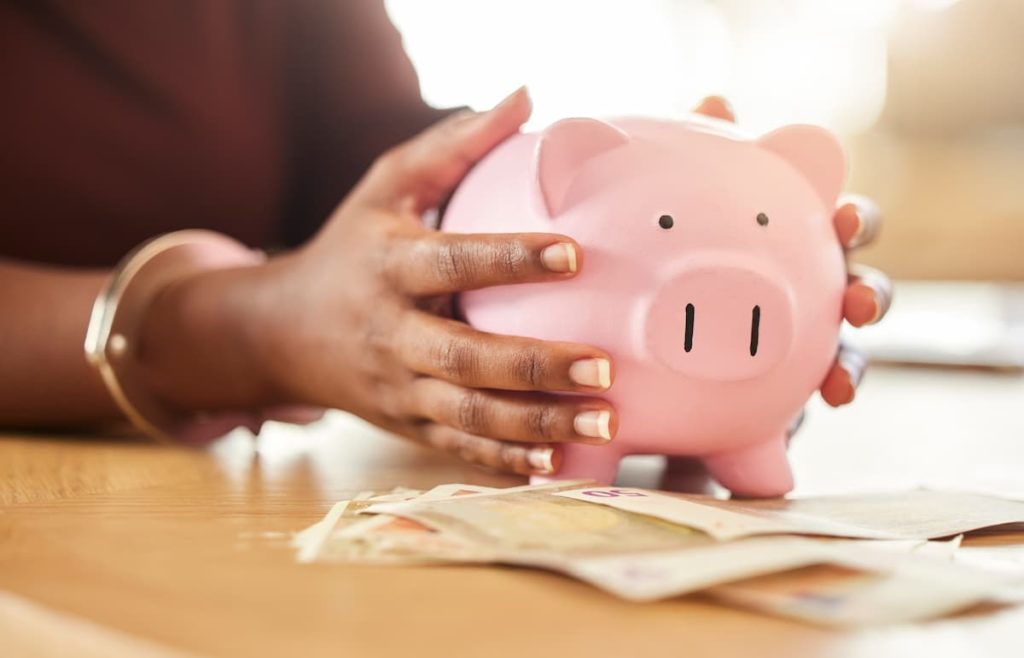
Every year, people all over the globe make New Year’s resolutions.
Typically, they’re related to health, wellness, and prosperity – in financial endeavors and in relationships. Fewer Americans are making resolutions now than in years of yore. In 2022, fewer than 30% of Americans made New Year’s resolutions compared to 40% to 45% of Americans making resolutions in the decade prior.
But why do we make resolutions? Why do we wait for the New Year to get lucky in love or finally quit smoking for good? Why do so many resolutions fail, and who started this fun (if not fatuous) tradition?
Let’s tear in. Here are all the fun whens, wheres, and whys of New Year’s. And a few ideas to help you make better, wiser resolutions for this New Year’s. And how you can actually keep them.
>>> Related: Resolved to save money this year, build a nest egg, or pick up a side hustle? Join Swagbucks, the rewards site that pays you cash for surveys and things you already do online. Every day, over 9,400 users cash out free gift cards and PayPal rewards. Get the Swagbucks app in the app store, or join on Swagbucks.com.
What is the History Behind New Year’s Resolutions?
The history of New Year’s resolutions dates back to the ancient Babylonians some 4,000 years ago. The Babylonians held the first-ever recorded celebration of honoring the new year with a big fete (no documentation of streamers or party hats). However, they held their New Year’s festivities in mid-March, not January.

Babylonians celebrated the New Year in mid-March to coincide with the annual spring planting since it was a literal time of rebirth. Shedding bad habits and adopting more pious ones was seen as pleasing to the gods. Breaking one’s word could incur their wrath.
Emperor Julius Caesar set the date for New Year’s as January 1st. This date for his new calendar coincided with the festival of Janus, a two-faced god who looked back toward the previous year and forward into the next year. Romans would honor Janus by making sacrifices and promising good behavior for the year ahead.
That promise, or resolve, for better behavior in the new year has lasted. For centuries in Europe, the New Year marked a time for knights to renew their vows of chivalry and for Christians to promise more pious and charitable behavior.
And while New Year’s resolutions have religious roots, resolutions today are largely secular.
What Are Some Common New Year’s Resolutions?
Common New Year’s resolutions generally relate to personal health and well-being.
The most common New Year’s resolutions for Brits are:
- Exercise more.
- Lose weight.
- Eat healthier.
- Save more money.
- Take up a new hobby.
The most common New Year’s resolutions for Americans are:
- Exercise more.
- Eat healthier.
- Spend more time with loved ones.
- Lose weight.
- Save more money.
- Spend less time on social media.
- Improve job performance.
- Reduce job stress.
- Quit smoking.
- Cut down on alcohol.
Make Money for Making Your New Year’s Resolutions
For a number of common New Year’s resolutions, you can actually make money. Swagbucks is a rewards app and website for consumers that pay PayPal cash, Amazon, gift cards, and other rewards for various online activities.

- Claim cash back for your online shopping purchases. Earn 1% to 20% in free cash back rebates for over 7,000 stores including Macy’s, Kohl’s, Old Navy, Amazon, Home Depot, and Best Buy.
- Earn cash for sharing your opinions. Get paid to take short, paid surveys on a variety of interesting topics related to consumer shopping, social issues, new movies, and more.
- Get paid for your grocery receipts. Earn cash for uploading your grocery store and supermarket receipts. Earn for just scanning the receipt, or for making a specific item or category purchase.
- Get paid $40 to lose weight – on top of winning up to $995 a month. HealthyWage uses financial incentives to keep you accountable for making your weight loss goal. Wager money and when you hit your weight loss goal, you win big. Sign up and place a weight loss wager, and you’ll get a free $40 HealthyWage signup bonus from Swagbucks.
- Exclusive savings for healthy meal kits. Using tasty, pre-portioned meal kits makes it much easier for you to keep on track with goals of eating healthier or losing weight. Get exclusive savings like free trials, first month free, and cash back rebates for using meal delivery services. Check out meal kit deals!
- Build your wealth. There are many safe, secure, and new-user-friendly financial investment apps. They allow everyday people to make big returns on their money by investing and only need a couple of bucks upfront to get started.
- Learn the ropes of crypto and get $35 free when you sign up for Luno and invest just $10.
- Dip your toes into the world of Wall Street investing. Get $45 free when you sign up for Tornado and invest $20.
- Explore easy, user-friendly, investing with the Robinhood app. Sign up for Robinhood and get $35 free when you invest $5.
- Learn how to build your portfolio by investing in stocks, funds, or every crypto. Get $16 free when you sign up for Public and deposit at least $5.
Save $2,023 This Year Using Swagbucks
Anyone can save $2,023 this year using Swagbucks if they put in a little bit of time and effort. Swagbucks users who log in at least twice a week earn $150 to $200 a month on average, which translates into $1,800 to $2,400 a year.
To reach $2,023 a year on Swagbucks, you can break that down into these bite-size steps:
- Earn $5.54 a day, which you can get to by completing a daily to-do list, searching the web, and answering a few surveys.
- Earn $1,000 (yes, one thousand dollars!) for free by completing the top Swagbucks offers with generous signup bonuses and rewards. Check out these offers totaling $1,000 now. It’s a way to power boost your earnings! (After reaching $1K, you’d just need to hit $2.77 per day in earnings.)
- Scan all of your grocery and gas receipts to earn an additional $50 to $500 to your yearly total.
- Claim cash back on the purchases that you’re already making. If you make $5,o00 worth of online purchases a year, that’s an extra $100 to $500 a year. Score free cash back from thousands of stores and national retailers, including grocery stores like Kroger, Albertsons, Safeway, Sam’s, Vons, and Jewel-Osco. You can order online to nab the free cash back and then pick up your order in-store. That’s free cash back for buying groceries!
What Are the 3 Most Common Reasons Why New Year’s Resolutions Fail?
While around 40% of Americans make a New Year’s resolution, only 8% of us are successful at making them stick. Life coaches have identified these 3 reasons as the most common reasons why we fail at keeping our goals for the New Year.
- Lack of accountability. It’s hard for people to hold themselves accountable toward new goals, but accountability is key when it comes to facing obstacles and setbacks. Find helpers who support you and keep you on track for your goals, not the kind who derail you by telling you it’s just one little cigarette and that they don’t want to go outside and smoke alone.
- No clear strategy or plan. Unrealistic goals fail. And so do goals without a clear strategy. A goal to “lose weight” is incredibly vague and has no actionable steps or benchmarks. A goal to lose 10 pounds by a set date through using the treadmill at least 3x a week? That’s actionable, measurable, and specific.
- Inner doubt. Feelings of inadequacy and fear of failure. Many of us who set resolutions don’t want to succeed – not deep down. Mired in feelings of self-doubt, we set goals we think we should be setting. “I’ll get healthier.” But we don’t want to put in the work because we don’t want to fail.
In short, keeping your New Year resolutions requires serious determination, a support system, and a plan of action. It’s not about “making more money”, but rather a more specific and tactical goal like “I will make an extra $2,000 year by completing X surveys a day on Swagbucks” or “I will make an extra $5,000 a year to pay off my car by picking up a side hustle on Uber Eats or DoorDash“.
When Did New Year’s Resolutions Begin?
New Year’s celebrations and resolutions began with the Babylonians in 2,000 B.C. They celebrated the New Year over a 12-day festival called Akitu (coinciding with the vernal equinox). This was the period when Babylonians put in their crops, crowned any new king, and made pledges to repay their debts. A common resolution recorded was to return any borrowed farm equipment.
Roman Emperor Julius Caesar introduced the tradition to the Western world in 46 B.C. Resolutions were tied to promises to the gods of good deeds for the year ahead.
Up until the early 20th century, resolutions were tied to religiosity and upright, moral behavior. Today, modern New Year’s resolutions are more secular and relate to personal health, wellness, and growth. Such resolutions include career advancement, quitting smoking, or ticking items off a bucket list.
What is the History of New Year Celebrations?
Celebrating New Year is a big deal in countries all around the globe. While most people celebrate the new calendar year on January 1st, various cultures and countries around the globe celebrate the New Year on different days.

- Western countries: By the 17th century, most European nations celebrated the New Year on January 1st although Julius Caesar introduced this date in the 1st century B.C. Festivities over the years have been marked by parties, special foods, watching fireworks, making toasts, New Year’s resolutions, and singing Auld Lange Syne in English-speaking countries.
- Eastern countries: China, Vietnam, and other Eastern countries celebrate the Lunar New Year. For the Chinese and Vietnamese, the date of the New Year can fall anytime between January 21st and February 21st (of the Gregorian calendar). It is the most important celebration of the year. Korea’s Lunar New Year Day begins on January 1st. Tibetan New Year falls anytime between January to March. A Lunar New Year celebration is a time to worship ancestors, pray for good harvests, shed bad, and welcome in the new and good. It’s celebrated by temple visits, street fairs, dragon dances, flower market shops, gambling, banquets, and sprucing up your house. Out the old, unwanted, and broken and in with the clean and new.
- Brazil: People head to the beach and right after midnight on January 1st, they jump in 7 waves while making 7 wishes. Wave-crashers wear white as a symbol of purity.
- Japan: The Japanese kick off their New Year by eating a bowl of warm soba noodles. This tradition dates back to the 12th century and is linked to the tradition of Buddhist temples giving noodles to the poor. Soba noodles are long, thin, and firm yet easy to bite. Biting the noodles symbolizes a literal break from the old year.
- Haiti: January 1st falls on Haiti’s National Day of Independence. Haitians celebrate by eating pumpkin soup (called soup joumou) because it was a delicacy that Black slaves were not allowed to eat during the French occupation. Today, Haitians often go to others’ houses and bring pumpkin soup to swap.
- Philippines: On December 31st, families serve 12 rounds of fruits including plums, pears, apples, and grapes. Fruit represents prosperity, and each fruit represents one of the 12 months of the year.
- Columbia: On New Year’s Eve, families place 3 potatoes under the bed of each family member. One potato is completely peeled, one is unpeeled, and the final one is only partially peeled. At midnight, each person closes their eyes and grabs one. Depending on the potato they select, they can expect a year of wealth, struggle, or a mixture of both.
Are New Year’s Resolutions Pointless?
The answer is no, or rather, it depends. Powerful or pointless, the significance of New Year’s is a matter of perspective. The holiday can be a great time to reboot. As humans, we like fresh starts and clear markers of the past. A new year or new occasion (a new baby, a new job, a new city, or a new year), is a powerful mental boost.
While researchers have long noted that many resolutions fail, they also believe in the power of making positive change. When we have a moment or event that feels like a division of time, our mind is able to enter into fresh-start mode. We have episodic memories and think about our life in chapters. A New Year is a new chapter, and it primes the pump for us to start fresh and be successful at it.

NewYear’s Goals That Work
To be successful and make productive New Year goals, you need to make goals to start new habits instead of stopping old ones. Avoidance goals, like avoiding spending money, avoid eating sweets, or avoiding alcohol are far more likely to fail than goals of adopting new and positive changes like saving $10 more a week, eating 2 servings of vegetables a day, or drinking a mug of tea each night.
New resolutions that work are about forming new (and hopefully fun) habits, not trying to shed old ones.
Trending Articles:
- Swagbucks vs Survey Junkie
- How Much Money Should You Spend on a Wedding Ring?
- What Is Black Friday? How to Get the Best Holiday Shopping Deals
- Amazing Deals for Discounted Gift Cards
- How Does Twitter Make Money?
- How to Buy Ethereum
- Is Swagbucks Real Money?
- 16+ Legit Ways to Sell Textbooks Online for Extra Cash (Plus Tips for Selling)
- 10 Best Work From Home & Online Jobs to Earn Money in 2022
- Best Foot Masks for Dry, Cracked Feet
- Best Website for Coupons
- Good Side Hustles